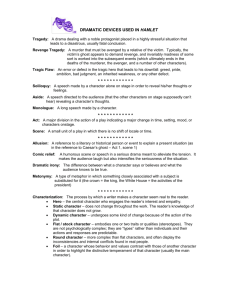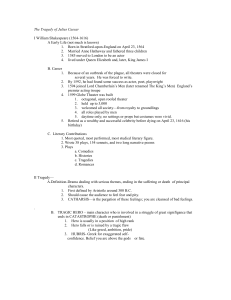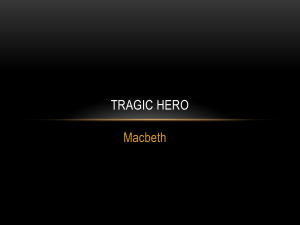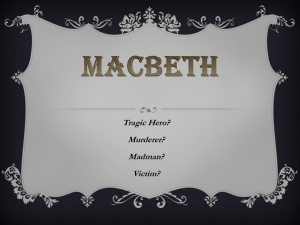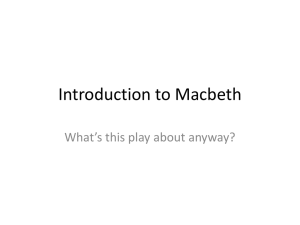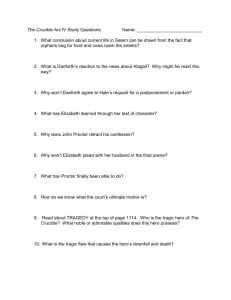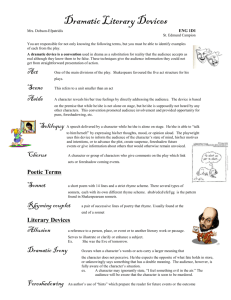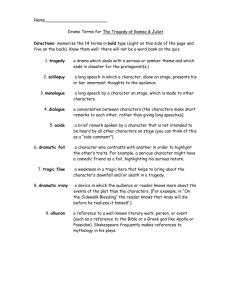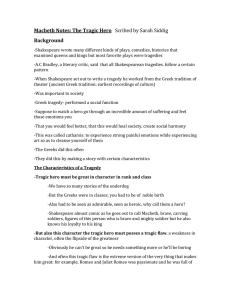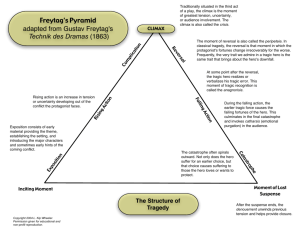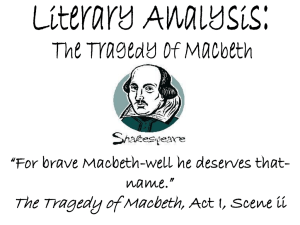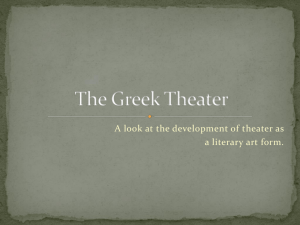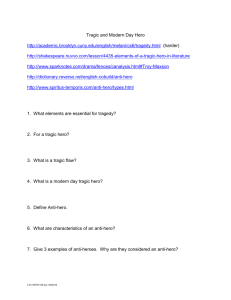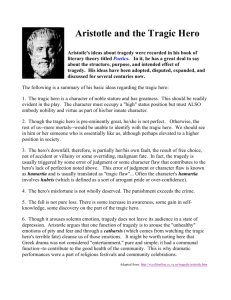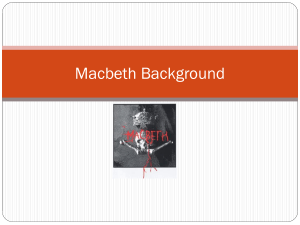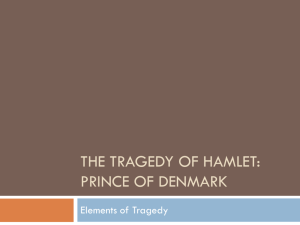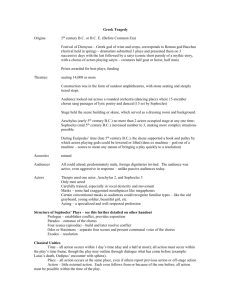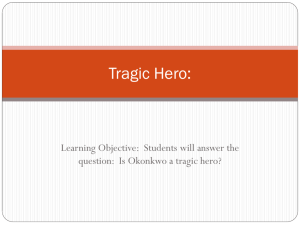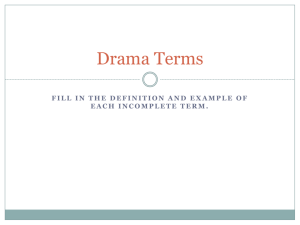Terms helpful to understanding Macbeth:
advertisement
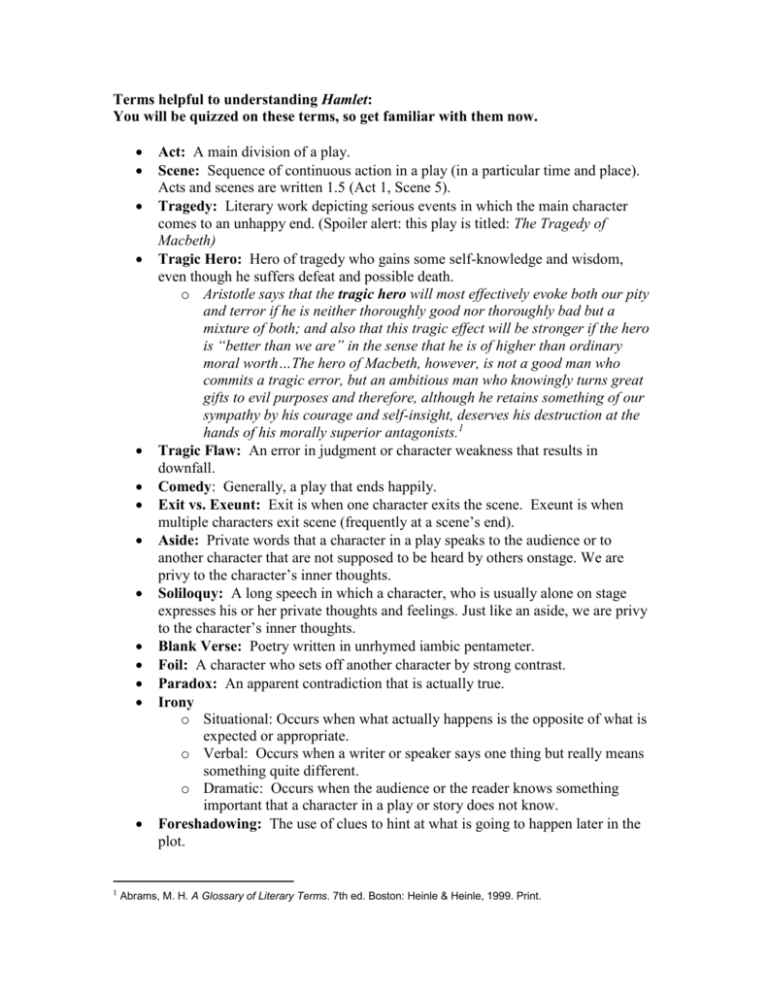
Terms helpful to understanding Hamlet: You will be quizzed on these terms, so get familiar with them now. 1 Act: A main division of a play. Scene: Sequence of continuous action in a play (in a particular time and place). Acts and scenes are written 1.5 (Act 1, Scene 5). Tragedy: Literary work depicting serious events in which the main character comes to an unhappy end. (Spoiler alert: this play is titled: The Tragedy of Macbeth) Tragic Hero: Hero of tragedy who gains some self-knowledge and wisdom, even though he suffers defeat and possible death. o Aristotle says that the tragic hero will most effectively evoke both our pity and terror if he is neither thoroughly good nor thoroughly bad but a mixture of both; and also that this tragic effect will be stronger if the hero is “better than we are” in the sense that he is of higher than ordinary moral worth…The hero of Macbeth, however, is not a good man who commits a tragic error, but an ambitious man who knowingly turns great gifts to evil purposes and therefore, although he retains something of our sympathy by his courage and self-insight, deserves his destruction at the hands of his morally superior antagonists.1 Tragic Flaw: An error in judgment or character weakness that results in downfall. Comedy: Generally, a play that ends happily. Exit vs. Exeunt: Exit is when one character exits the scene. Exeunt is when multiple characters exit scene (frequently at a scene’s end). Aside: Private words that a character in a play speaks to the audience or to another character that are not supposed to be heard by others onstage. We are privy to the character’s inner thoughts. Soliloquy: A long speech in which a character, who is usually alone on stage expresses his or her private thoughts and feelings. Just like an aside, we are privy to the character’s inner thoughts. Blank Verse: Poetry written in unrhymed iambic pentameter. Foil: A character who sets off another character by strong contrast. Paradox: An apparent contradiction that is actually true. Irony o Situational: Occurs when what actually happens is the opposite of what is expected or appropriate. o Verbal: Occurs when a writer or speaker says one thing but really means something quite different. o Dramatic: Occurs when the audience or the reader knows something important that a character in a play or story does not know. Foreshadowing: The use of clues to hint at what is going to happen later in the plot. Abrams, M. H. A Glossary of Literary Terms. 7th ed. Boston: Heinle & Heinle, 1999. Print.
